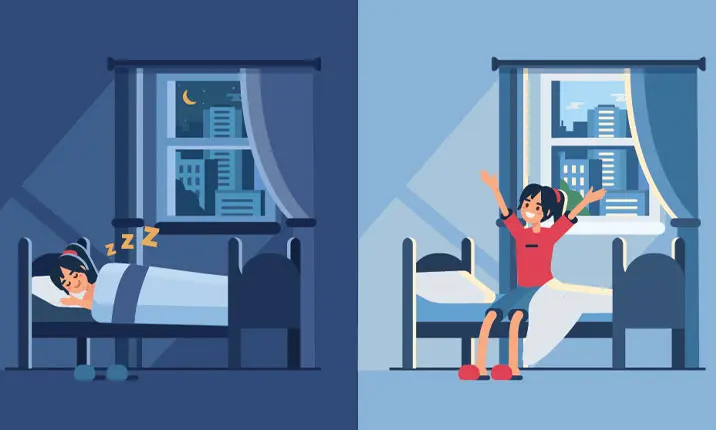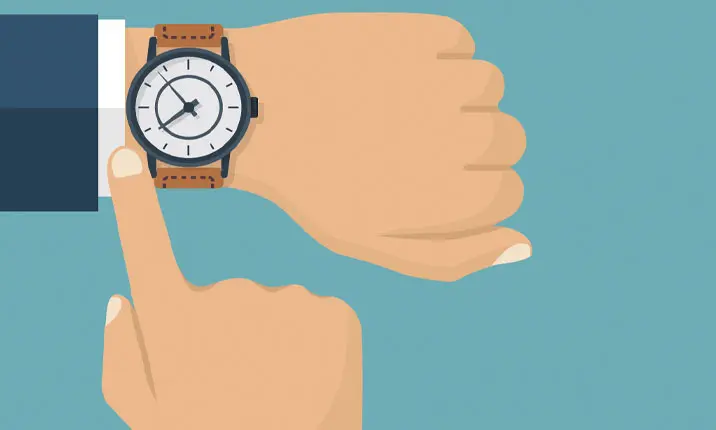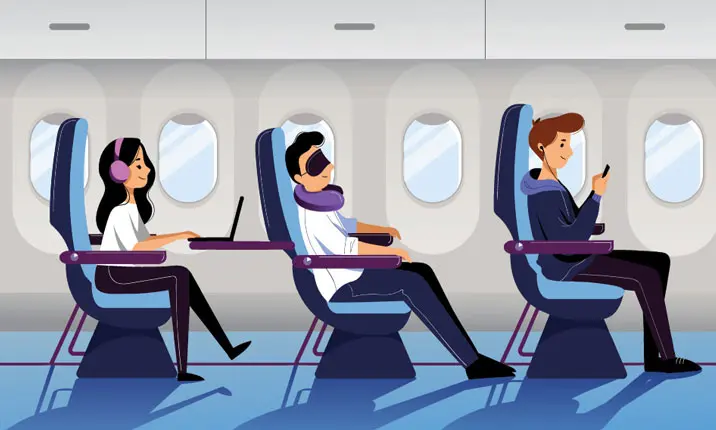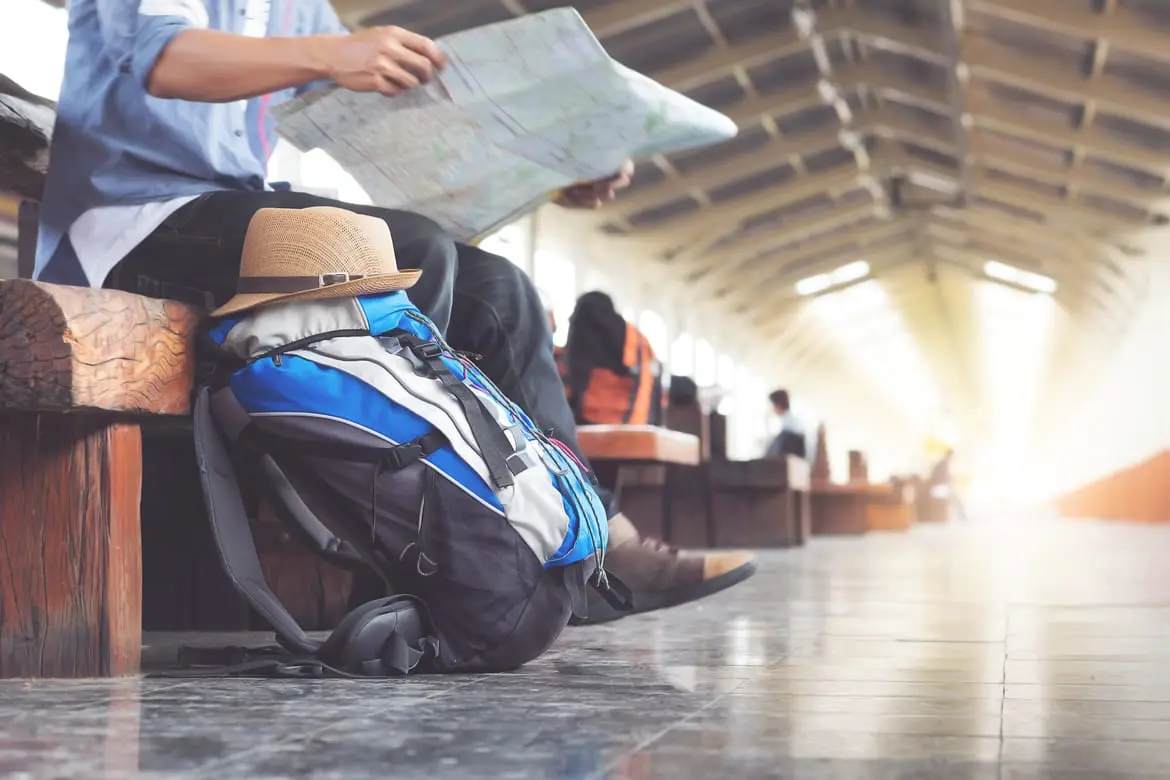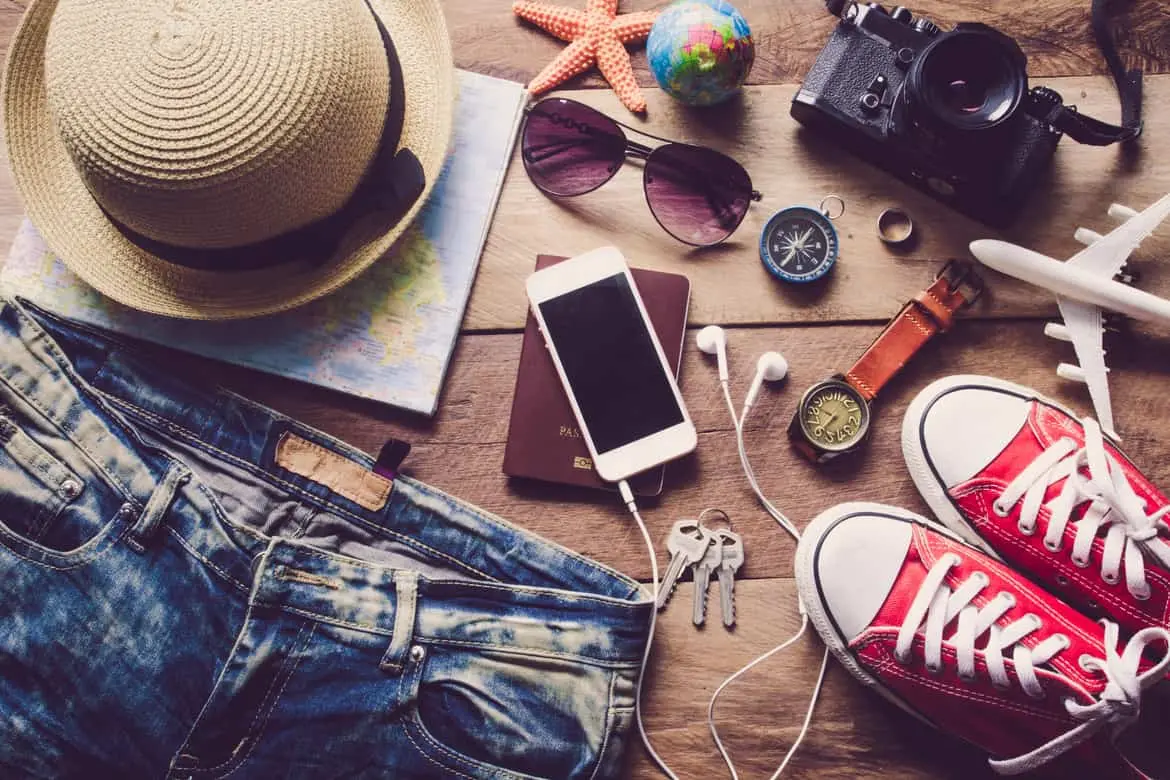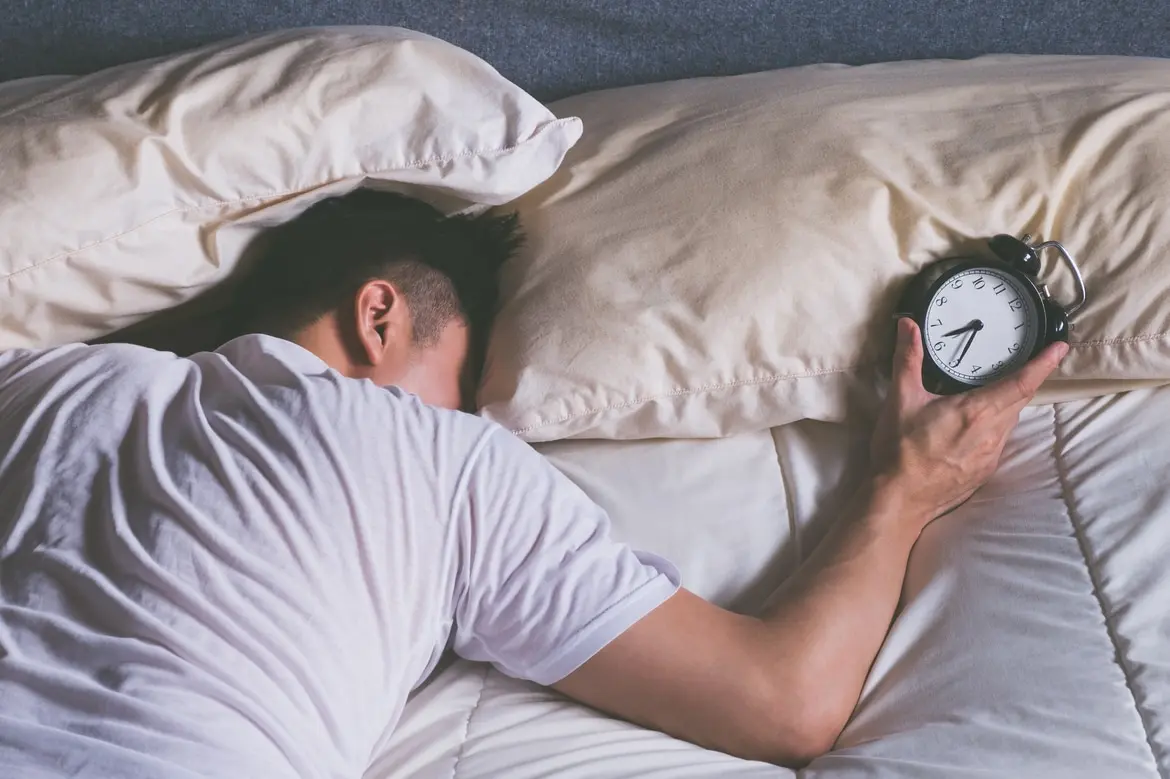
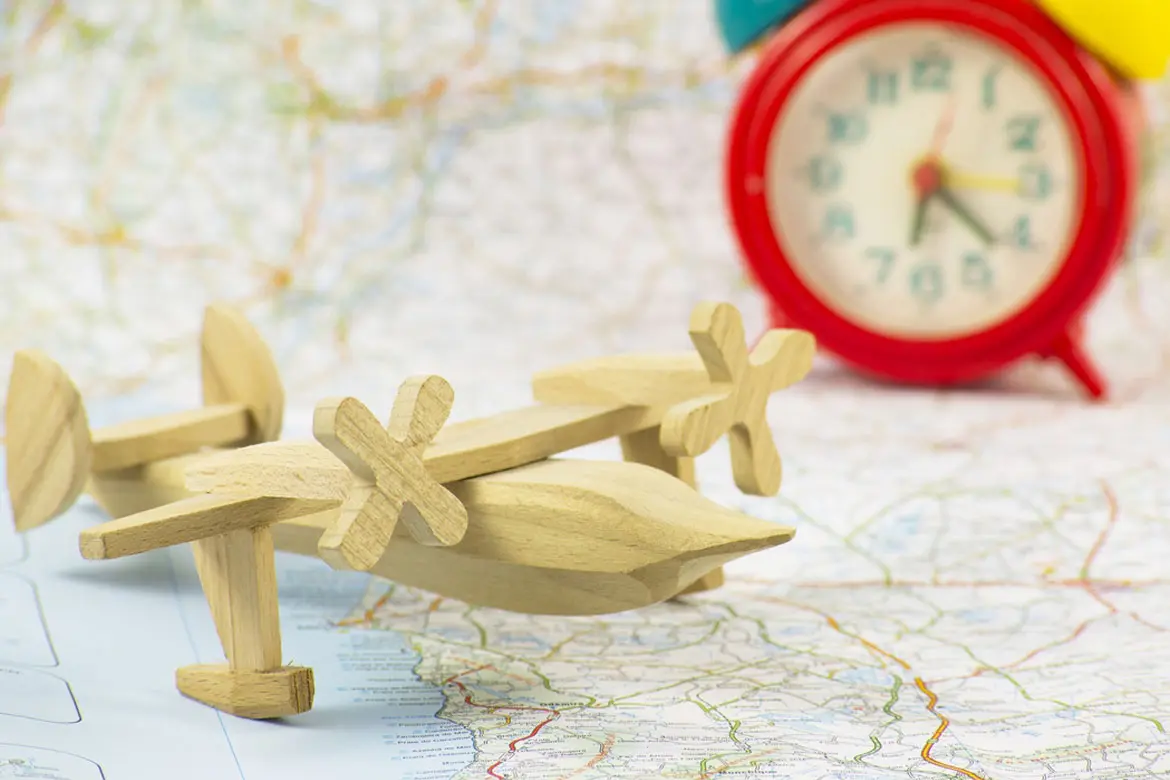
Source: Shutterstock
7 Ways to Overcome Jet Lag
Last updated: Thursday, February 11, 2021 | 8 min reading time
When you travel through multiple time zones, your body grapples with a confusion of its internal clock. This is known as jet lag and occurs due to the disruption in the body clock.
Body clocks don't reset easily, so here's how you can prevent 'losing time' to jet lag.
What is jet lag
When a person's sleep-wake patterns are disturbed, a condition known as jet lag, can occur. This can be caused by travelling across time zones or from doing shift work. Jet lag is believed to occur due to a disruption in activity and reduced synchronisation in the brain cells.
Symptoms of jet lag are more severe if a person crosses more time zones in a short period. Older persons also tend to exhibit more severe symptoms and take a longer time for their body clock to return to normal. Children usually have milder symptoms and recover faster.
Symptoms of jet lag
Symptoms of jet lag include:
- Sleep disturbances such as insomnia
- Difficulty in focusing, irritability and restless feeling
- Headache, heavy headedness or dizziness
- Depression
- Loss of appetite, diarrhoea or constipation
What causes jet lag?
Jet lag is characterised by a set of symptoms that occur when our internal body clock (also known as circadian rhythm) is disrupted.
Disruption to your circadian rhythm
Our body clock helps control when we wake and fall asleep, while affecting hunger, mood and blood pressure levels. Natural cues that regulate our body clock include light exposure, mealtimes, activities, and social engagement.
Imagine travelling to the Niagara Falls in Toronto, a country where life progresses 12 – 13 hours behind us. When we're asleep, the people in Toronto are just getting their day started. While we're sipping on our midday boost, they're fast asleep.
When we enter a time zone that's completely different from ours, our internal clock and the external time zone are desynchronised. We may be hungry at 1am, wide awake at 4am, and exhausted by 10am because our body's rhythm is not in tune with the different time zone yet.
Travelling from west to east
Jet lag symptoms are more severe when travelling from the western to eastern parts of the world as the body has less time to recover. When you travel to the east, the hours in your days reduce. This means the body has less time to adjust and synch up with a circadian rhythm. Crossing multiple time zones further increases the severity of symptoms.
Alcohol and caffeine
Drinking alcohol or caffeine during or before a long-haul flight is likely to worsen jet lag symptoms. Alcohol can increase the need to urinate, which may disturb a good sleep. Additionally, although alcohol does induce sleep, the quality of sleep may be lower. Caffeine also disturbs sleep patterns.
Airplane pressure and oxygen
When people are flying, the low pressure in an airplane's cabin may reduce the amount of oxygen reaching the brain. This can result in lethargy and worsen jet lag symptoms.
How to overcome jet lag?
What can you do to overcome jet lag? Here are 7 tips to help your body clock adjust to the new time zone faster.
Shift your sleep-wake times
The expression 'west is best, east is a beast' is true. This is because if you're travelling east, you'll end up trying to get sleep when your body is actually waking up, or trying to get up at what feels like the middle of the night.
Therefore if you're travelling east, start moving your bed time half an hour earlier each night for several nights before you leave. If you're travelling west, do the opposite. You can also try moving your meal times closer to the time you'll be taking them at your destination.
Adapt while on flight
Adjust your watch the moment you get on board your flight. This helps your mind adapt to the change in time and schedule at your destination.
Once that is done, try simulating your new schedule while in the plane. It is important to consider if sleeping on board is going to be in your best interest. If it's daytime at your destination, you should consider foregoing sleep and using the time to relax or work.
If it's night time at your destination, try catching some shut-eye on the plane. It would help to cancel out as much noise and light as you can by wearing ear plugs and an eye-mask.
Control your light exposure
Since light exposure is one of the main signals that regulate our body clock, manipulating your light exposure may be an effective way to adjust faster to your new time zone and hence avoid jet lag.
Manipulating your exposure to light helps shift your body's circadian clock so that you feel rested and awake at appropriate times at your destination.
Online jet lag calculators and apps are available to help you plan your exposure to light. These tools advise you the time and duration you ought to avoid light or seek it based on your location, destination, flight and arrival time.
Arrive ahead of schedule
If you're travelling to an important meeting and have to be on top of your game, plan your flight such that you arrive a day or two earlier. Arriving ahead of your schedule will give your mind and body time to adjust to the time difference.
A long flight takes a pretty big effort from your body and you definitely deserve some time to recover. It takes an extra toll on your body if you fly from a cold area to a hot area, and vice versa. It is best to give your body a few days to acclimatise to the environment and time zone.
Avoid alcohol and coffee
Cabin air is notoriously dry so be sure to watch what you drink on board. You'll notice your skin feels stretched and dry so drink water before, during, and after your flight to counteract dehydration.
Drinks such as alcohol and coffee, however, may not be a good idea. Alcohol may help you fall asleep, but it also dehydrates you and makes it harder for you to adjust to the new time zone later. The same applies to caffeine-heavy beverages like coffee, cola and energy drinks.
Eat right
Some frequent fliers swear by jet lag diets, which consists of eating a heavy diet for a few days before travel and fasting on flight day. No diets have been scientifically proven to be effective in preventing jet lag.
Here's a tip in choosing the right food: Carbohydrate-rich food can make you feel heavy and tired, whether you're on ground or in the air. Rice, potatoes, pasta and burgers during a stopover may increase your need for sleep, which can be helpful if you arrive your destination at night.
If you've got a full day ahead, you should choose lighter, more protein-rich food. Lean meat, fish, and eggs will fill you up just enough for your body to use the energy to stay awake.
Keep moving
While travelling on long flights, do some exercise to boost your endorphins and stretch out the kinks that might have developed during the long flight. Get up to walk around periodically, stretch and do some static exercises during the flight – they can help you feel more energised, especially if you need to keep awake when you land.
However, if it's near bed time when you land, avoid heavy exercise as it can make it harder for you to fall asleep.
Now that you've figured out on how to beat jet lag while travelling overseas, don't forget to adjust back before heading home again. If you fly frequently and struggle with jet lag, consider seeing a sleep medicine specialist, who can help with shifting your body's circadian rhythm and reducing jet lag symptoms.
Coping With Jet Lag and Sleepiness. (n.d.). Retrieved from http://www.webmd.com/sleep-disorders/features/jet-lag-remedies
Jet lag disorder. (n.d.). Retrieved from http://www.mayoclinic.org/diseases-conditions/jet-lag/basics/definition/con-20032662
Jet Lag: What it is and How to Beat it. (2017, December 20) Retrieved December 27, 2020, from https://www.medicalnewstoday.com/articles/165339
Jet lag disorder. (n.d.). Retrieved from http://www.mayoclinic.org/diseases-conditions/jet-lag/basics/definition/con-20032662
Jet Lag: What it is and How to Beat it. (2017, December 20) Retrieved December 27, 2020, from https://www.medicalnewstoday.com/articles/165339
 Brain & Spine Care
Brain & Spine Care
